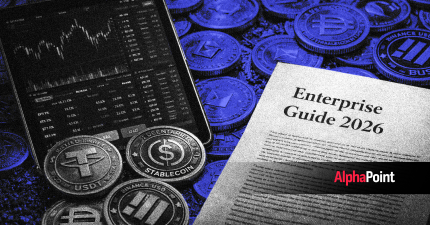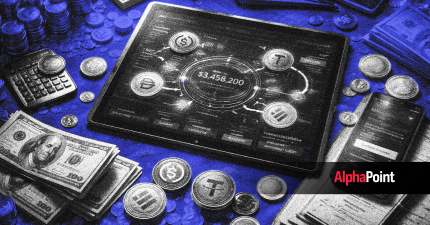How Customers Pay With Bitcoin: A Guide for Businesses
Cryptocurrency is reshaping fintech: There are now over 560 million crypto owners globally — but no cryptocurrency matches Bitcoin’s popularity.
Over time, Bitcoin has developed into more than just an investment; it’s become a payment method, eliminating the need for owners to convert it into fiat currency to complete transactions.
With over 30,000 merchants, including restaurants and car manufacturers, accepting Bitcoin, there’s no better time to facilitate Bitcoin payments. Doing so can open up a new revenue-generating opportunity and help you attract users looking for more convenience in their transactions.
In this post, we look at how customers can pay with Bitcoin and how financial institutions can support these transactions.
How Customers Pay With Bitcoin Step-By-Step
The Bitcoin payment process is quite intuitive — which is likely a contributing factor in its popularity. Here’s how it works:
1. Set Up a Bitcoin Wallet
As with any typical money transaction, customers need an interface to pay using Bitcoin. That’s where a Bitcoin wallet comes in — it stores the private keys they need to complete payments.
There are various Bitcoin wallet options, including:
- Software wallets: These are connected to the internet and often take the form of an app that lets you transact directly from your mobile device or desktop. Some popular examples are Electrum, Mycelium, and Exodus.
- Hardware wallets: These are physical devices often resembling USB drives that store cryptocurrencies. They’re offline and, as such, serve more as long-term storage solutions.
- Custodial wallets: These are managed by third parties and also function more as storage solutions.
2. Acquire Bitcoin
The first step to acquiring BTC is to find reputable crypto exchanges or financial institutions that support crypto trading. Some great options include Coinbase, Gemini, Revolult, and JP Morgan Chase.
After making their choice, customers need to register and link their user accounts to their bank accounts. For this, they may be required to provide personal information such as their Social Security numbers and bank details, after which they can start to buy Bitcoin.
3. Initiate a Payment
- Customers ask merchants for their wallet address or a QR Code that provides the address when scanned.
- They then tap the option to send Bitcoin in their wallets.
- They enter the required payment amount, which is automatically converted from the local currency using the current exchange rate.
4. Confirm the Transaction
It’s worth noting that funds sent to the wrong address can’t be recovered. So, customers need to double-check transaction details before completing purchases.
If they’re accurate, the next step is to confirm the transaction so that the Bitcoin network can process it — this involves signing the payment with their private keys.
5. Transaction Verification
Once confirmed, they need to wait for the blockchain to verify and complete the transaction. This can take anywhere from 10 minutes to several hours, depending on network traffic.
Customers who are in a hurry can speed up the process by opting to pay higher fees. Alternatively, they can transact during off-peak periods.
Benefits of Allowing Customers To Pay With Bitcoin
Is accepting crypto payments worthwhile? Without a doubt! Here’s why:
Lower Transaction Fees
By allowing Bitcoin payments, you cut out some of the intermediaries involved in traditional payment methods like credit cards. For example, customers don’t need to pay credit card companies, and merchants don’t have to share their revenue with banks.
Plus, customers don’t incur wire transfer fees when making international transactions, which can result in significant savings over time.
No Chargebacks
Chargebacks are a major challenge for modern merchants. Unfortunately, there’s little business owners can do with traditional payment options like credit cards — they have to wait for the relevant financial institutions to determine whether to approve reversal requests.
With Bitcoin payments, there’s no risk of chargebacks. Since transactions are peer-to-peer, customers can’t put in reversal requests after a transaction.
Privacy and Security
Bitcoin payments are linked to wallet addresses, not customers’ and merchants’ identities. This allows them to keep their transactions private.
Bitcoin payments are also more secure than traditional options. They’re verified by the blockchain, a decentralized ledger that tracks and records all financial transactions, minimizing the risk of fraud.
The Role of Businesses in Facilitating Bitcoin Payments
Convinced about the value of Bitcoin payments in today’s financial landscape? Here are some ways you can facilitate them to attract more customers and merchants to your business:
Providing a Bitcoin Wallet
Crypto wallets are the heart of Bitcoin transactions. After all, it’d be impossible for crypto owners to transfer BTC without them.
Offer institutional-grade wallets to make your cryptocurrency exchange or financial institution a top choice for customers. Choose options with security features like encryption, multi-signature wallets, and two-factor authentication to help users store and manage their Bitcoin securely.
Payment Gateway Solutions
Payment gateway solutions are intermediaries that enable product and service providers to accept Bitcoin payments. They’re a lot like traditional credit/debit card payment processors, the only difference being that they typically facilitate online purchases.
Integrate these gateways into your exchange to process transactions directly through your platform — you’ll need robust APIs and plugins from your exchange and chosen gateways.
Integrating the technologies can enhance users’ convenience and their likelihood of staying loyal to your business.
Converting Bitcoin to Fiat
With Bitcoin‘s volatility, users need to be able to convert Bitcoin payments into fiat currencies like USD and EUR and stablecoins like USD Coin (USDC) and PayPal USD (PYUSD). To facilitate this, partner with payment processors that allow instant conversions. This reduces the risk of losing value due to fluctuating Bitcoin prices.
Security Features
Unfortunately, the rising cases of cryptocurrency thefts (hackers stole roughly $1.38 billion in crypto within the first half of 2024) can discourage some potential customers and merchants from trying Bitcoin payments.
To build trust in your platform, offer features like multi-factor authentication (MFA) and secure storage to protect user data and funds. Also, conduct regular audits to identify vulnerabilities before they cause losses.
Compliance With Regulatory Requirements
While the crypto market has yet to be fully regulated, financial institutions must adhere to some local and international regulations regarding cryptocurrency payments.
For example, you need to implement Know Your Customer (KYC) and Anti-Money Laundering (AML) processes to prevent illegal activity on your platform. You also need to report income and sales for tax purposes.
Work with legal advisors to understand your jurisdiction’s specific regulations and ensure your business remains compliant.
Accept Bitcoin Payments Seamlessly With AlphaPoint
Because of benefits like lower fees and enhanced privacy, it’s safe to say that Bitcoin payments are here to stay. Join the wave of institutions facilitating these transactions by integrating secure Bitcoin wallets and payment gateways into your platform.
Who knows? Allowing Bitcoin payments may be the leverage you need to increase your user base.
With AlphaPoint, you have access to a robust custody and merchant ecosystem that lets you facilitate Bitcoin payments. We offer a retail wallet app that customers can use for everyday Bitcoin transactions, as well as a merchant processing interface and mobile app for businesses to accept digital currencies.
Schedule a demo with AlphaPoint today to learn how we can help you facilitate Bitcoin payments.


